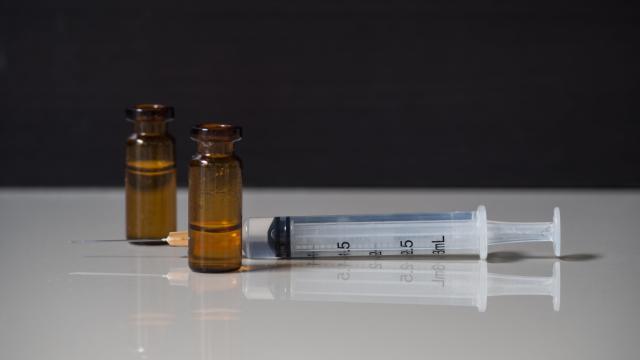New research this week is the latest to find that ketamine can help people with difficult-to-treat depression. The study has found that people with treatment-resistant depression responded as well to ketamine therapy as those who were given electroconvulsive therapy, a commonly used intervention for these cases.
Ketamine has been employed as an anesthetic in medicine for decades. It can also be used as a recreational drug with euphoric and dissociative effects. But more recently, it’s been adopted as a new kind of depression treatment. The drug can be given off-label as an intravenous infusion, while a nasal spray version was approved for depression by the Food and Drug Administration in 2019.
One reason that scientists have been excited about ketamine is that it seems to affect the brain in a different way from other antidepressants, and often much more rapidly. That suggests that it’s possible to someday develop a new class of better or safer drugs from its example. And it also means that ketamine might be able to help patients who haven’t responded to other interventions. While ketamine can be effective for some patients with depression, though, it’s not clear yet how often it should be used.
This new study, published Wednesday in the New England Journal of Medicine, is perhaps the largest of its kind to directly compare ketamine to one of these existing options: electroconvulsive therapy, or ECT. ECT has garnered a bad reputation at times, thanks in no small part to its earliest iterations that were genuinely less safe. But it’s remained a mainstay in psychiatry for decades and is often considered a gold standard intervention for cases of treatment-resistant depression.
The study involved around 400 patients who sought care at one of five different clinics across the country for their treatment-resistant depression. They were randomised to receive standard ECT or intravenous infusions of ketamine over a three-week period. Those who responded to either treatment, defined as a 50% or greater improvement in their symptoms, were then tracked for another six months.
Ketamine passed the primary goal of the trial, being non-inferior to ECT, but it might have even outperformed the latter. Overall, 55.4% of the patients in the ketamine group responded to the treatment, compared to 41.2% of those in the ECT group. People in either group also experienced a similar improvement in their quality of life.
Some past research has suggested that ECT might be better at treating acute depression than ketamine. But the authors note these studies have tended to involve smaller sample sizes and might have involved patients less likely to benefit from ketamine. Because of ketamine’s dissociative effects, for instance, it’s not recommended for people with depression who have also experienced psychosis, and the authors explicitly excluded these patients from the trial.
Both ketamine and ECT carry their own unique risks. In this trial, for instance, patients using ECT were more likely to experience memory problems, which is a well-known complication. Conversely, some experts have worried about the addiction potential of therapeutic ketamine if it has to be used regularly, though this study wasn’t able to assess that risk.
At the end of the day, these and other findings suggest that while ketamine isn’t a miracle depression treatment, it can be a valuable and even preferred alternative for people who aren’t responding to frontline antidepressants.
“It’s a question of risk assessment for each individual patient,” Boris Heifets, a Stanford University ketamine researcher not involved in the study, told STAT News. “Neither of these things is risk-free, neither is transformative.”
